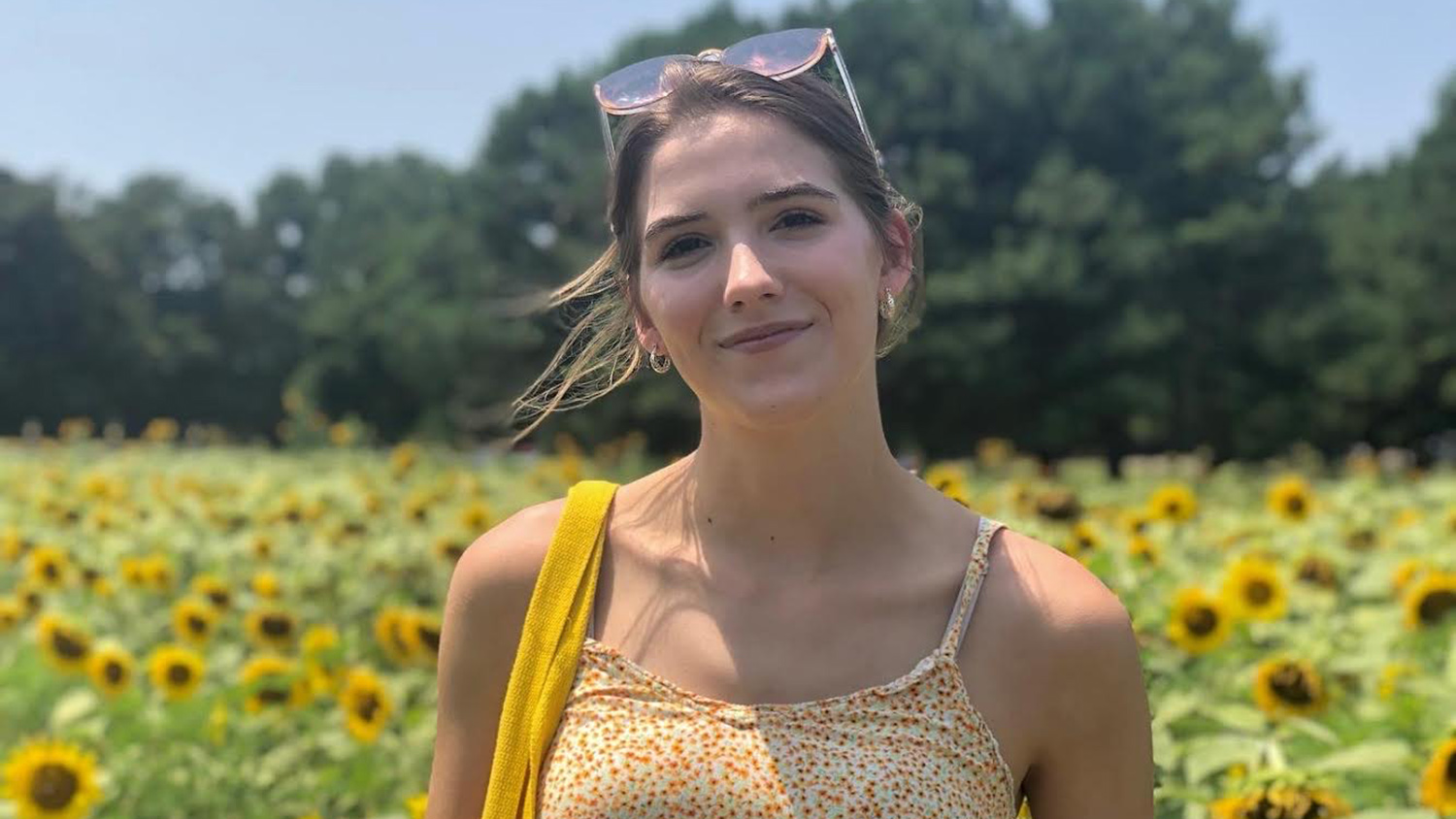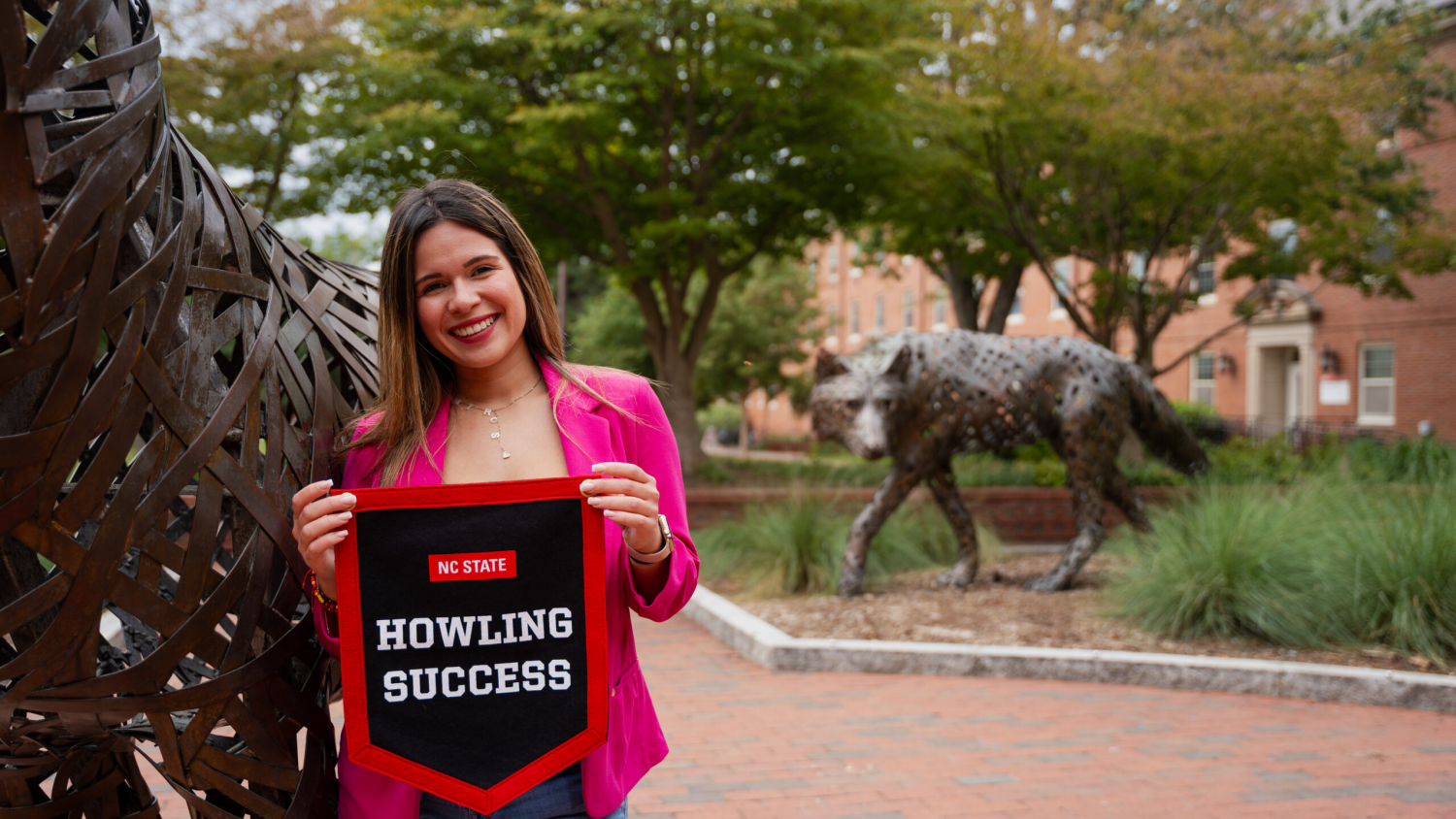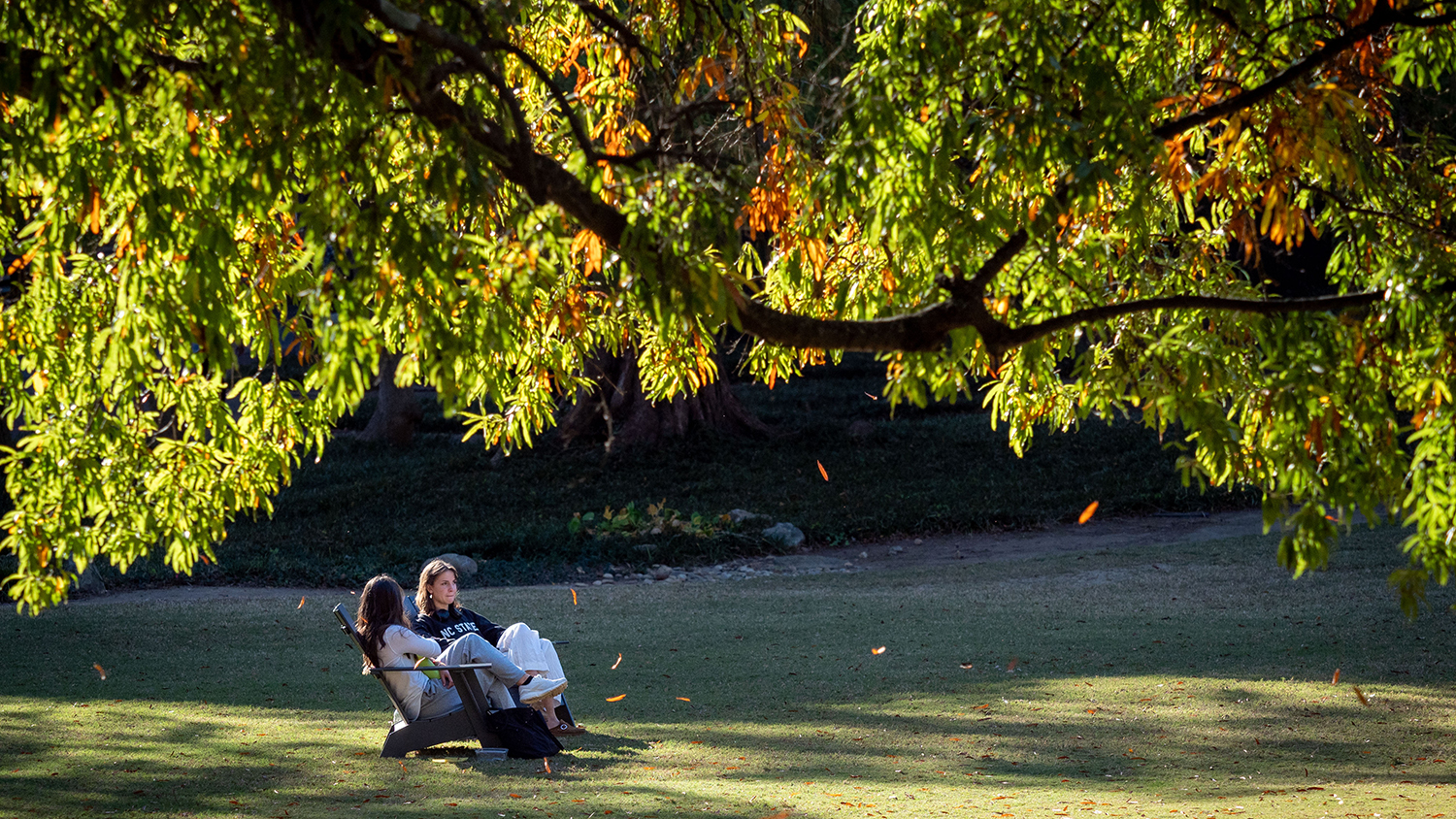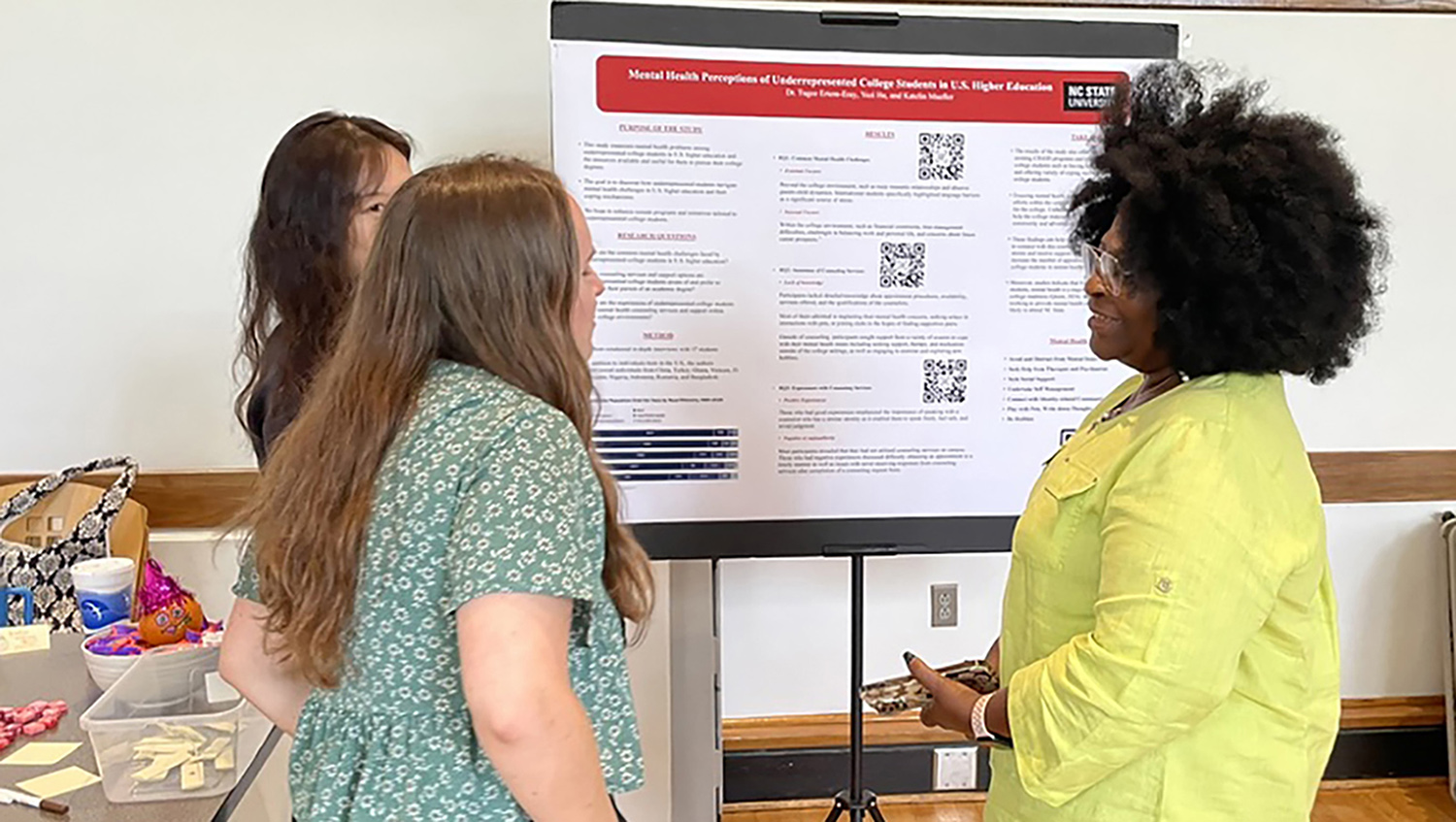Meet Sophie Korenek, a junior majoring in philosophy and biochemistry. She’s also a Jefferson Scholar, a dual-degree program of the College of Humanities and Social Sciences and College of Agriculture and Life Sciences.
For the past semester, Korenek has worked as an undergraduate researcher with philosophy professor Gary Comstock. Under Comstock’s guidance, Korenek has led a cohort of students to assist Comstock in developing How We Evaluate, an online philosophy course that teaches critical thinking skills.
We caught up with Korenek to learn more about her experiences as an undergraduate researcher, student leader and Jefferson Scholar … and her advice to her younger self.
What is your role in creating the course, How We Evaluate?
My work focuses on developing lessons and short lecture videos to deliver the course in bite-size pieces. One of the most important aspects of our project, and one that is uncommon in philosophy, is that we’re working as a large research team. Dr. Comstock has recruited a group of students who are working on everything from writing the dozens of questions needed for each lesson to coding a program that will automatically build our online quizzes. Dr. Comstock and I work together to align their contributions with our goals for the course. It takes a huge amount of effort to build a class like this from scratch, and I can’t imagine trying to complete it without our team.
Where is your involvement in this leadership role taking you?
Over the course of the semester, I’ve gained a lot of knowledge and independence in how I can best contribute to How We Evaluate. Dr. Comstock puts a lot of trust in my opinions and decisions, and it’s been really rewarding to have a leading role in the project. This January, Dr. Comstock and I are planning to present How We Evaluate at the American Philosophical Association conference in Baltimore, Maryland. I’m really excited to share our work with other educators and to gain some new perspectives from them as well. It’s a great opportunity to travel somewhere new and see what experts in our field are studying, so I’m really looking forward to it!
Why is a critical thinking course like How We Evaluate important?
How We Evaluate teaches critical thinking skills in the context of analyzing college-level texts. Critical thinking is rarely taught directly, and contrary to popular belief, it’s not an intuitive skill. We want to teach students how to evaluate complex arguments on their own and to recognize when an author’s reasoning for their claims falls short. This isn’t just important in the classroom. Every day, we are bombarded by misleading advertisements, political messages and online misinformation trying to convince us of unsupported claims. The ultimate goal of How We Evaluate is to teach students to see through rhetoric and decide for themselves what to believe about what they see, hear and read.
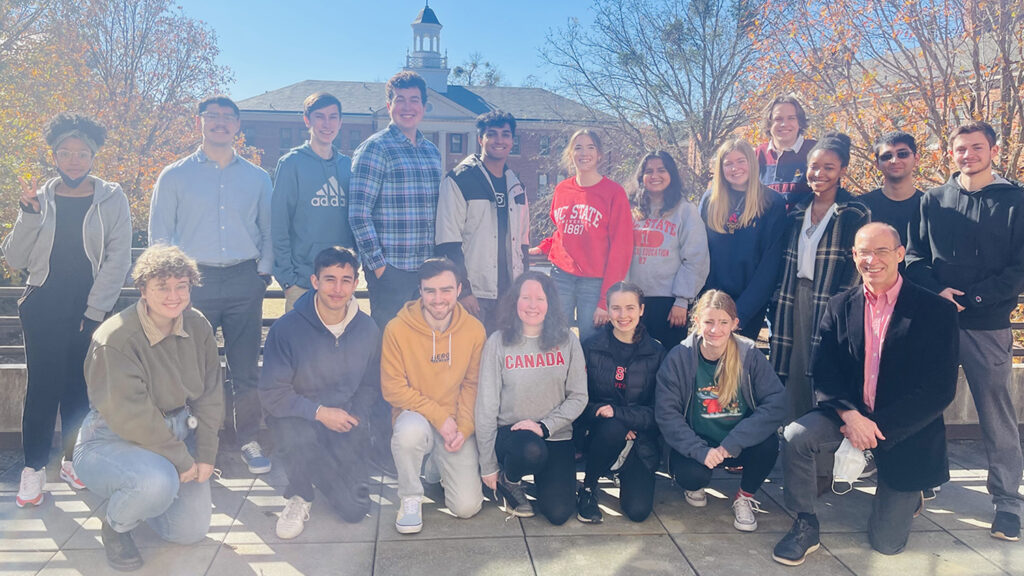
What led you to double major in philosophy and biochemistry?
I applied to NC State thinking that I would only be studying biochemistry. I had a great high school chemistry teacher and I knew that I wanted to gain a deeper understanding of how life works on a molecular level. Then I was given the opportunity to apply to be a Thomas Jefferson Scholar through a dual-degree program centered on completing two majors: one from the College of Agriculture and Life Sciences and one from the College of Humanities and Social Sciences. I found philosophy in my search to understand how life works from a different perspective. Studying philosophy is practical and necessary for any STEM student, even if one doesn’t go for a full double major. As science and technology advances rapidly, we are all responsible for making informed ethical decisions about what we should do out of all the things we can do.
What does being a Jefferson Scholar mean for your college experience?
My participation as a Jefferson scholar has been a defining feature of my college experience. Taking on two majors from very different fields can be daunting, but the Jefferson community really helps to lessen this. It’s great to be surrounded by a group of like-minded students achieving the same goal, and our program mentors work so hard to make it possible for us. The value of an interdisciplinary education is becoming increasingly recognized, and I really believe that my classmates are the future of solving global challenges.
You’re also an identical twin. Has your sister — who’s a microbiology major at State — ever gone to class for you?
Nope! But she’s always been my built-in study buddy, and we got to take our first few classes at State together. Moving to Raleigh, which is a much bigger city than our small hometown, was intimidating at first (but exciting!), and I’m very thankful that I’ve gotten to experience college with my best friend.
What advice would you give your younger self?
I would tell myself, “Just go for it!” – to accept the opportunities that I’ve been given without doubting my abilities. When I first got the chance to become a Jefferson scholar, I wasn’t sure that I’d be able to do it. The same goes for helping with How We Evaluate — I’m also a biochemistry research assistant and I just didn’t think that I’d have time. This year has taught me that when you really love something, you’ll be able to make time. I was a very stressed underclassman, and my mentors always used to tell me that everything would fall into place. My experiences at NC State have absolutely proved that.
- Categories:
